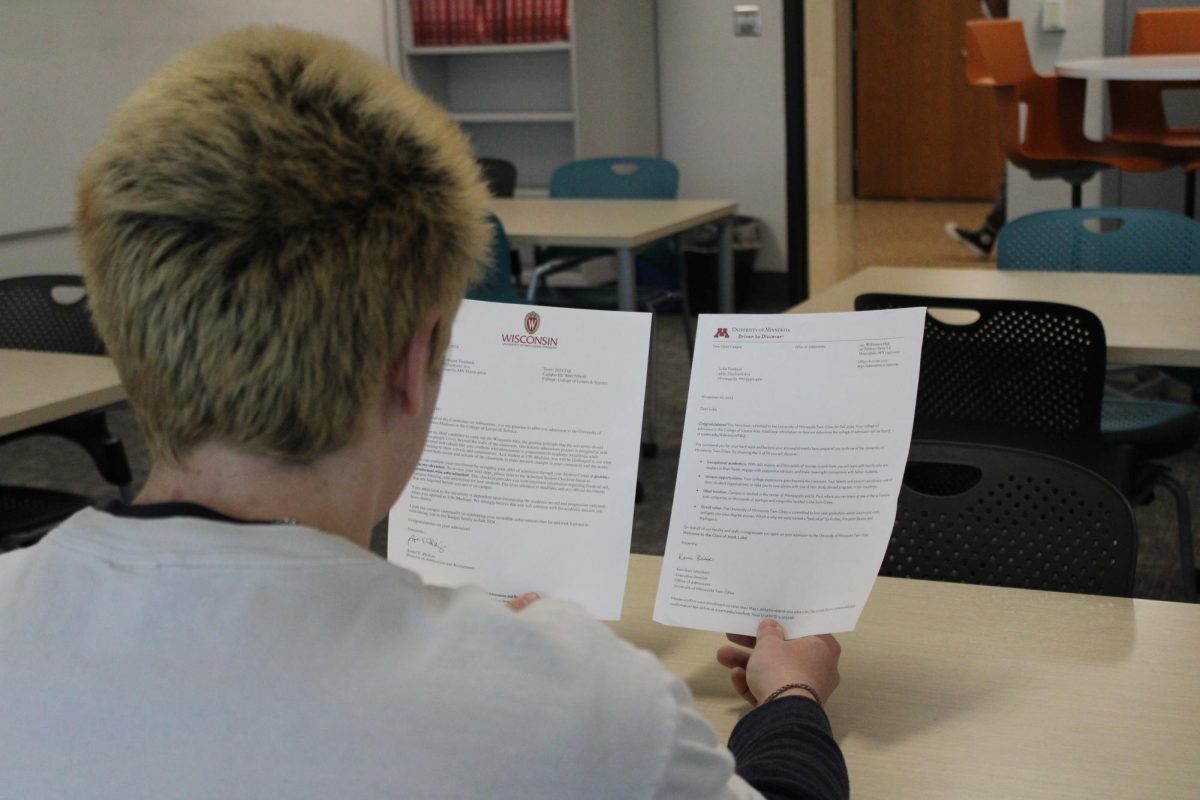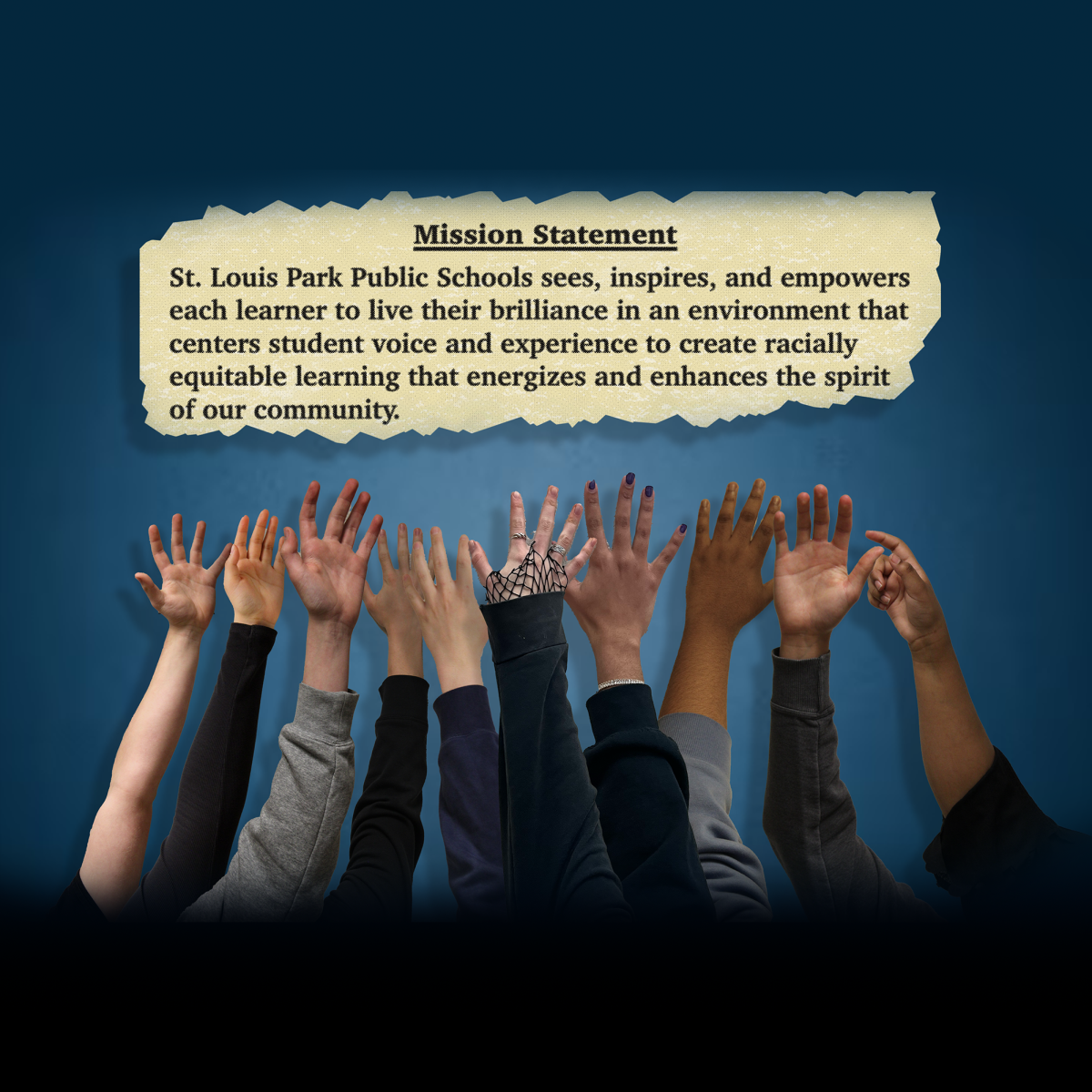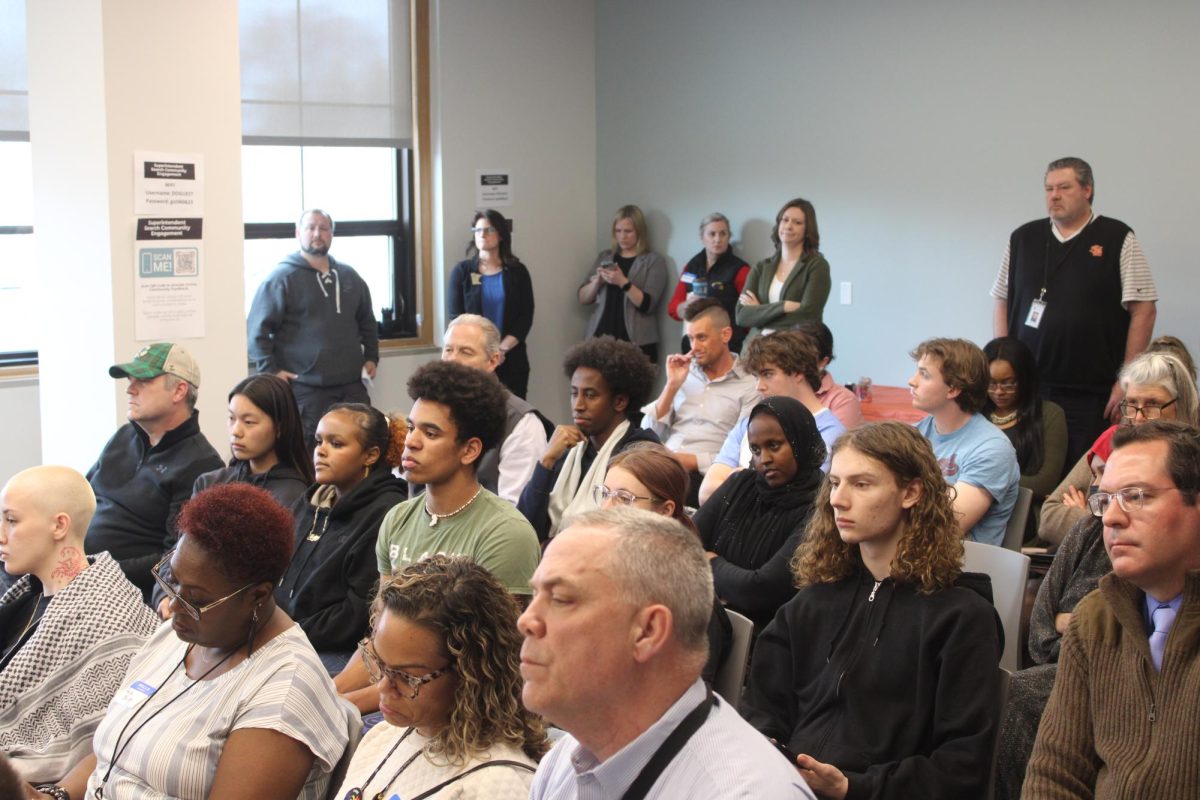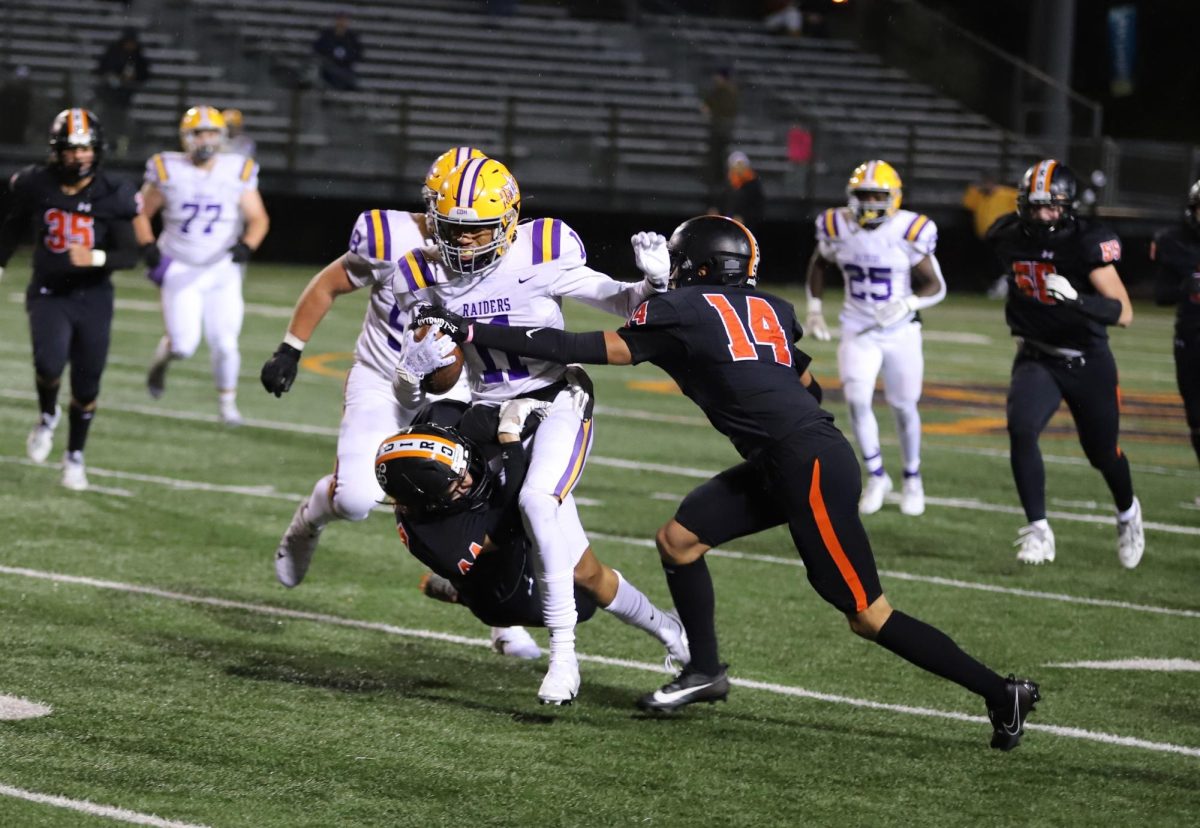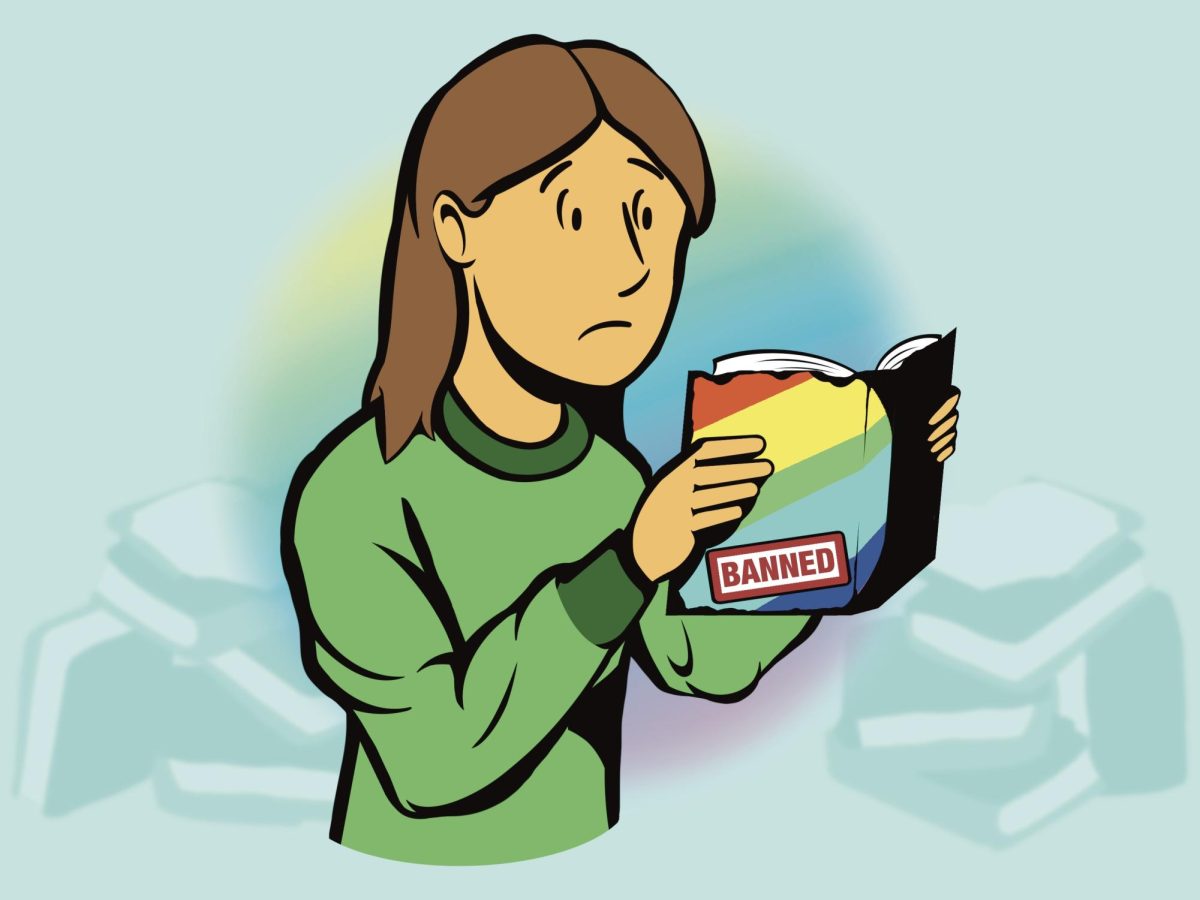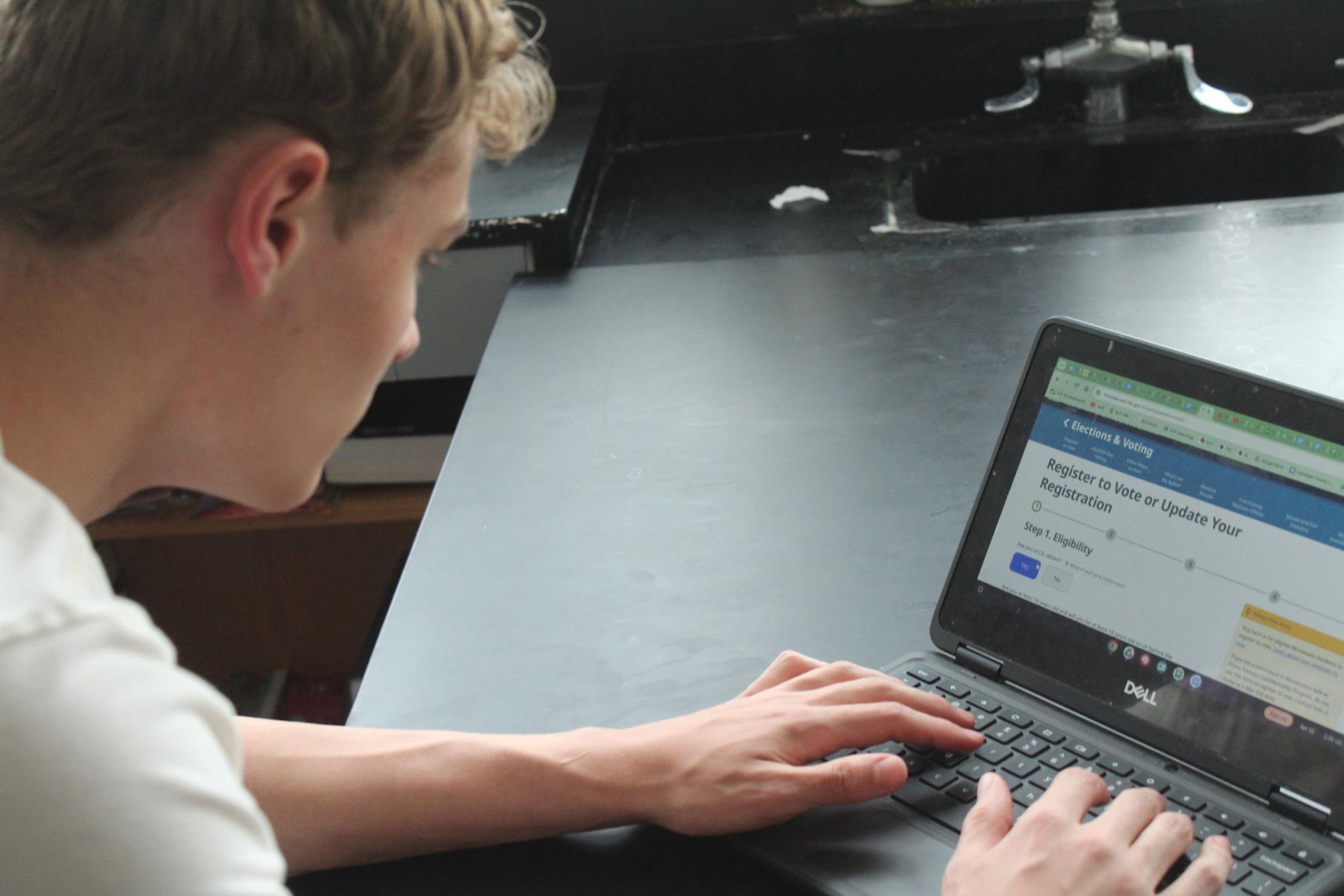
This upcoming November, the United States will have a presidential election. For some rising seniors, this will be the first time they will be able to vote. This election, like some in the past, will be very controversial with a lot of opinions and beliefs on who should be president. This can influence schools all over the country, as different students have different political views. With the controversy of this upcoming election, there may be incidents involving students who have these different viewpoints. That can lead to tensions created among the students, which might create an atmosphere unbeneficial to the school system.
Majority Whip of the United States House of Representatives Tom Emmer said public school districts should not push more certain political views, but rather push more neutral and in the middle opinions because it can start bad opinions towards students and teachers.
“While teachers can, and should, provide students with opportunities to explore different perspectives, it’s important to avoid promoting specific political views,” Emmer said.
According to AP (Advanced Placement) United States History teacher Scott Miller, the election and politics has become a sore and touchy subject over the years of teaching due to strong beliefs and judgment throughout the school.
“It certainly has always been (controversial) to some extent,” Miller said. “But it’s important for us to try to remain neutral and to try to present both sides and not try to shape students’ perspectives, but allow them to arrive at their own conclusions that are based on evidence.”
Senior Beckett Truett said election and politics can be a sore subject, but when it is talked about, it seems as if students are engaged, intrigued and wanting to learn about the political side of the world.
“You can tell (the election is controversial) because they’re not talking about it in a lot of classes, but when they are talking about it, a lot of kids raise their hands and it’s a very soft topic,” Truett said.
AP European History teacher Emma Engebretson said politics and election becomes a top conversation throughout the school, which she thinks can create stronger opinions towards people.
“I have not worked here during an election year, but it really puts politics and our government at the forefront of a lot of conversations, and it probably brings up more conversation about the elections, politics, people’s beliefs, ideologies, etc,” Engebretson said.
According to Miller, the election year garners a lot of attention from students in schools, which can help promote political awareness.
“It generates some buzz of excitement for the kids, especially those into politics,” Miller said. “It’s great for our freshman civics courses because they can really take a deep dive into some of the big issues facing the electorate.”
Engebretson said she believes politics and election talk is a touchy subject. She said this because of what people believe in, but it should be talked about.
“It could be touchy, but I do think it’s important to talk about and at least provide space to talk about it, because school is a great place to learn about politics and educate yourself about what you believe in,” Engebretson said. “Who in government aligns with your beliefs, and how can you make sure that you’re holding our politicians and people in government accountable to what they’re saying they believe in versus what they’re doing? School is a really great space to be able to learn about and discuss politics, to figure out what you believe in and what you want to advocate for.”
Schools for many students are the main place to get information on current politics, so it’s imperative that schools educate students to be able to make informed voting decisions. Politics can be a controversial topic, creating obstacles for schools that are trying to teach students about politics. Every school teaches about politics in their own way, bringing up the question of what Park does to educate its students, and whether this is adequate job of educating its students by providing students with information about the election and politics. Students and teachers have varying perspectives on how much Park teaches about the election, and there’s the controversial question of if Park pushes a certain political view.
Emmer said during election years, schools such as Park should educate their students on current politics and voting, but it should be done without bias towards a political party.
“Our schools have a duty to educate students on the democratic process and the importance of voting,” Emmer said. “However, it is important to ensure that this education is focused on participation in our democratic process without pushing political agendas.”
Staying unbiased and neutral when teaching politics is extremely important because it allows students to create their own opinions and form their own political views without influence from the school. Miller said he makes sure to remain unbiased, and doesn’t favor any political party as he teaches since it’s important for students to form their own opinions.
“My role is not to push a political view, but to present both sides of an issue,” Miller said. “Typically, what I’ll do is, let’s say the class intends to take a more liberal perspective, what I’ll try to do is be a counter to that and play devil’s advocate and be a Republican or a more conservative issue. It’s good for kids to hear both sides and arrive at their own conclusions that are based off of their values and evidence.”
Truett said he doesn’t believe Park educates the majority of students enough on current politics or information regarding upcoming elections and students need to do their own research to learn.
“I don’t think they teach us much, because we don’t talk about politics a lot,” Truett said. “Unless you do research outside of school, then you don’t really know what’s going on with the government.”
According to Rosvold, Park doesn’t teach students much on elections, and that it’s up to the students trying to learn on their own
“There aren’t many ways that Park students are informed about voting other than researching on their own,” Rosvold said. “There aren’t many resources that students can go to to figure out how to get started.”
According to Engebretson, in her classes she makes an effort to educate her students on current political events, but it’s hard to teach about politics when teachers also need to be teaching the actual class.
“Kids certainly get a lot of attention to these issues and civics,” Engebretson said. “There’s definitely an effort to draw some parallels in your regular classes. But it can be tough, too, because for example, I’m teaching, trying to prepare people for a task so I sometimes don’t feel like I have enough time to be able to devote to current political issues, as well as feeling like I need to get to a certain point by a certain time.”
Miller said students have created groups to aid other students and there are chances to learn more about voting and politics for students.
“I know there have been some student groups,” Miller said. “One is working on registering voters. I know that we’ve had a pretty robust mock UN. That’s familiarizing students with global issues. There are opportunities there if people look for them.”
Miller said schools can improve their political education by covering recent events, but that it’s hard to find a way to teach those while also teaching real classes.
“We certainly could always cover current events more. The hard part is getting the right balance between that and also covering our subjects that were expected to teach and meet state standards,” Miller said.
Truett said Park should add more election based learning and political based learning because it’s a great sense of knowledge that you should have an understanding of. He also said when you are learning to vote you should also know why you’re voting for this candidate, what your beliefs and reasonings are.
“They could make everybody do a practice vote, talk more about what the candidates are actually trying to get elected for and how that will impact the school or impact your daily life,” Truett said.
Engebretson said Park could create spaces for students and the Park community to learn together about current politics, while also doing more to promote students voting and participating in the election.
“Having more community conversations about the electoral process, encouraging students to make more informed votes, and for the community members to come and learn about our government, election process and how to make their own informed votes,” Engebretson said. ”Encouraging people to vote, increasing voter turnout and providing students with spaces to be able to talk about politics and process politics at school.”
According to Emmer, he shares a similar idea in that schools could offer an environment where students can come together to learn more about politics, but he said students need to be able to create their own political identity without outside influence from the school.
“Discussing current events and allowing students to debate policy issues can be helpful for students to understand the complexities of the political landscape, however, these discussions must remain objective and free from political influence,” Emmer said.
Engebreston said Park is informing students on what to look for when voting, and how to adequately prepare them for when it is their turn to vote.
“As a social services department, we do a good job of trying to carry (voting education) from freshman through senior year, by doing mock elections and having representatives come into the school to talk about it,” Engebretson said. “Part of it, too, is also encouraging students to take agency into their own learning and desire to want to be involved in and have knowledge on politics.”
Rosvold said Park can help students figure out how to register to vote and aid students in researching potential presidential candidates.
“Have people talk to you about how to sign up for voting and kind of ways to research who you want to vote for based on your beliefs, or help you learn more about what each current candidate stands for,” Rosvold said.




